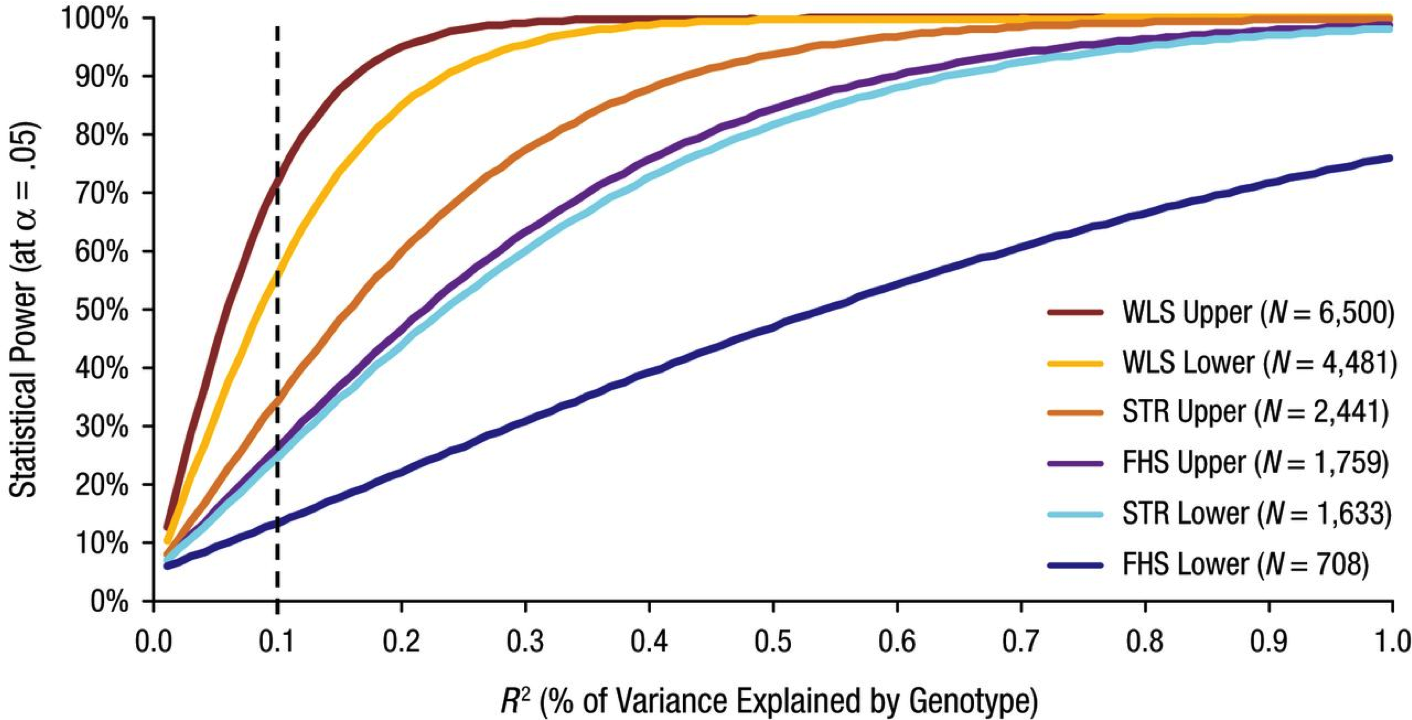
Most Reported Genetic Associations with General Intelligence Are Probably False Positives
Abstract
General intelligence (g) and virtually all other behavioral traits are heritable. Associations between g and specific single-nucleotide polymorphisms (SNPs) in several candidate genes involved in brain function have been reported. We sought to replicate published associations between g and 12 specific genetic variants (in the genes DTNBP1, CTSD, DRD2, ANKK1, CHRM2, SSADH, COMT, BDNF, CHRNA4, DISC1, APOE, and SNAP25) using data sets from three independent, well characterized longitudinal studies with samples of 5,571, 1,759, and 2,441 individuals. Of 32 independent tests across all three data sets, only 1 was nominally significant. By contrast, power analyses showed that we should have expected 10 to 15 significant associations, given reasonable assumptions for genotype effect sizes. For positive controls, we confirmed accepted genetic associations for Alzheimer’s disease and body mass index, and we used SNP-based calculations of genetic relatedness to replicate previous estimates that about half of the variance in g is accounted for by common genetic variation among individuals. We conclude that the molecular genetics of psychology and social science requires approaches that go beyond the examination of candidate genes.
Citation:
C.F. Chabris, B.M. Hebert, D.J. Benjamin, J. Beauchamp, D. Cesarini, M. van der Loos, M. Johannesson, P.K. E. Magnusson, P. Lichtenstein, C.S. Atwood, J. Freese, T.S. Hauser, R.M. Hauser, N.A. Christakis, D. Laibson, "Most Reported Genetic Associations with General Intelligence Are Probably False Positives" Psychological Science, 23(11): 1314-1323 (November 2012); http://dx.doi.org/10.1177/0956797611435528